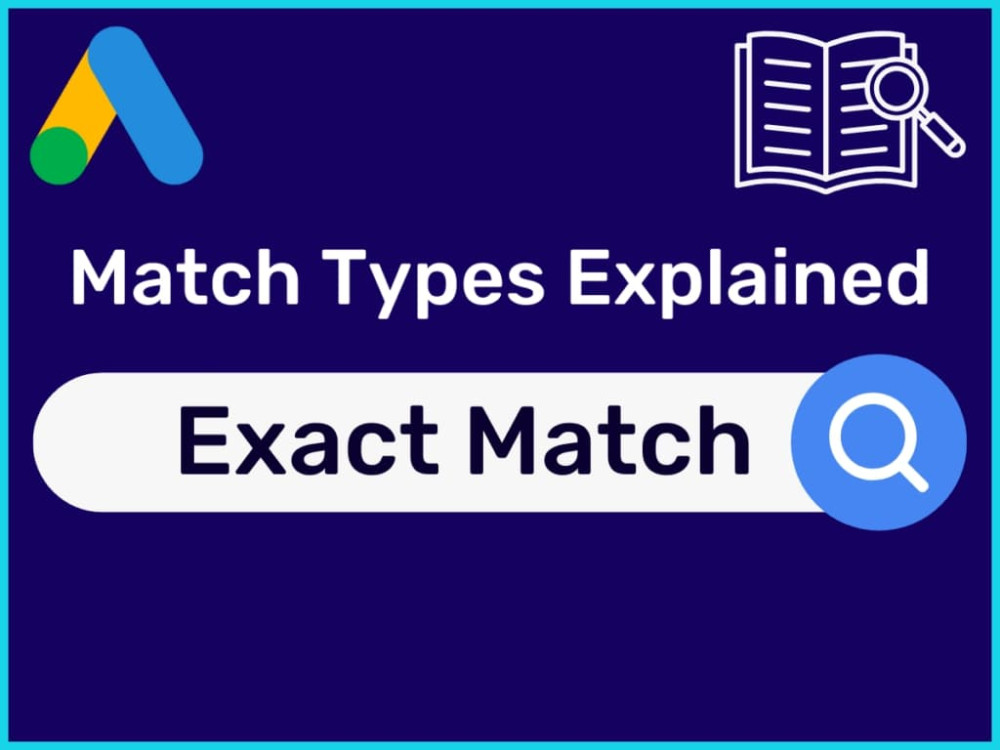optimize your strategy for better results.
Exact match keywords are a fundamental aspect of keyword strategy in digital marketing, particularly in the realm of search engine advertising. Understanding how to use exact match keywords effectively can significantly impact the success of your ad campaigns and overall SEO efforts.
What Is an Exact Match Keyword, Anyway?
An exact match keyword is a search term that triggers your ad or content to appear only when a user types in that exact phrase or close variations of it. Close variations include misspellings, singular and plural forms, abbreviations, and reordered words with the same meaning. Unlike broader keyword match types, exact match keywords provide the highest level of control over who sees your ad or content.
Exact match keywords are encapsulated in brackets, like this: [exact match keyword]. For example, if you bid on the exact match keyword [red running shoes], your ad will only appear when someone searches for "red running shoes" or a very close variant.
The Importance of Exact Match Keywords
Exact match keywords are crucial for several reasons:
Precision Targeting: They allow you to target a highly specific audience, ensuring that your ad is shown to users who are searching for exactly what you offer.
Cost Efficiency: By targeting specific keywords, you can reduce wasted ad spend on irrelevant searches.
Higher Conversion Rates: Users who search for an exact match keyword are often closer to making a purchase decision, leading to higher conversion rates.
Better Ad Relevance: Exact match keywords ensure your ads are highly relevant to the user's search query, which can improve your ad quality score and lower your cost-per-click (CPC).
So Exact Match Keywords Are Better than Phrase Match and Broad Match, Right?
While exact match keywords offer precise targeting, they are not necessarily better than phrase match and broad match keywords in all situations. Each match type has its own advantages and use cases.
Broad Match: This match type offers the widest reach. Your ad can appear for searches that include synonyms, related searches, and relevant variations. It's useful for reaching a broader audience and discovering new keywords, but it can also lead to irrelevant clicks.
Phrase Match: Your ad appears for searches that include the meaning of your keyword. Phrase match offers a balance between broad and exact match, providing more flexibility while maintaining some level of control.
Exact Match: Provides the highest level of precision but with a more limited reach. It's ideal for targeting users who are likely to convert and for controlling ad spend.
Choosing the right match type depends on your specific goals. Broad match is great for brand awareness and discovering new keywords, phrase match balances reach and relevance, and exact match is best for high-intent searches.
What Kind of Keyword Strategy Should I Use?
A well-rounded keyword strategy typically includes a mix of exact match, phrase match, and broad match keywords. Here’s how to approach your strategy:
Start Broad, Then Narrow Down: Begin with broad and phrase match keywords to cast a wide net and gather data. Monitor performance and identify high-converting keywords.
Refine with Exact Match: Use the insights gained from broad and phrase match to refine your strategy with exact match keywords. Focus on high-performing keywords that drive conversions.
Segment Campaigns: Separate your campaigns by match type to better manage bids and budgets. For instance, use exact match keywords in campaigns focused on conversions and broad match for discovery campaigns.
Negative Keywords: Continuously add negative keywords to filter out irrelevant traffic, improving the efficiency of your ad spend.
Regular Review and Adjustment: Keyword performance can change over time. Regularly review your keyword lists and adjust your strategy based on performance data.
Discover Negative Keyword Opportunities
Negative keywords are an essential component of any keyword strategy. They help you exclude search terms that are not relevant to your business, preventing your ads from showing up in unwanted searches.
Identify Irrelevant Traffic: Analyze your search term reports to identify search queries that are triggering your ads but are not relevant to your offerings. Add these terms as negative keywords.
Improve ROI: By filtering out irrelevant traffic, negative keywords help you spend your budget more efficiently, focusing on high-intent searches that are more likely to convert.
Enhance Ad Relevance: Excluding irrelevant searches improves the overall relevance of your ads, which can lead to a higher ad quality score and lower CPC.
Expand Regularly: Continuously monitor your campaigns and update your negative keyword list. This ensures that your ads remain targeted and your budget is used effectively.
Exact match keywords are a powerful tool in your keyword strategy arsenal, offering precision targeting and higher conversion rates. However, they should be used in conjunction with phrase and broad match keywords for a well-rounded approach. Additionally, leveraging negative keywords is crucial for filtering out irrelevant traffic and optimizing your ad spend. By understanding and implementing these strategies, you can significantly improve the effectiveness of your ad campaigns and achieve better results.


